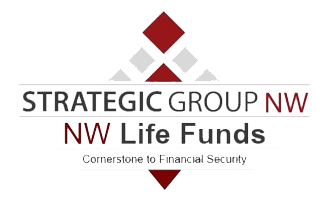When traditional asset classes fail to perform, advisor and investor interests tend to look beyond stocks and bonds towards alternatives and income providing asset classes to stabilize portfolios. With the current market drop and COVID19 economic chaos, we sat down to discuss the alternative life settlement asset class and other issues germane to financial strategy.
Q. How long have you worked with high-net worth individuals, and in what capacities specifically with life settlement investments?
William I Meyer – Managing Partner of NW Life Funds, LP – Since forever. I started working with high net worth individuals in 1981. My family was a group of Doctors mostly in Family Practice. It was natural for me to seek out Dr’s and Dentist as a group for clients. They are also for the most part too busy to manage their own money effectively so I stepped into that role.
I have a very strong background in math and was on Mutual of New York’s new products committee under the head actuary Teddy Shallack. It sounds odd to me now but 35 years ago Teddy forecasted the future Life settlement business. At that time there was 1 dollar of assets for every 7 dollars in death benefit and we were looking at Transamerica with 200 dollars in death benefits for every dollar of assets. To be more competitive in the market place we were trying to reduce the amount of reserves the company held . Teddy argued that we needed the reserves- “what would happen if people started to sell their policies? We would have to charge the premiums down the road to cover it.” boy was he right on both accounts.
Q. How do you feel about active management of investment portfolio’s?
It is important to realize that there is very little active management in the financial services arena. The major reason is the way the industry is managed by the SEC you have personal liability if you trade on any other than a buy and hold strategy. This makes since for broker dealers in that they charge a commission and one mutual fund is just as good as another. RIA’s are different because they charge a fee based on assets so they can trade as often as they wish as their compensation does not change. However, if they actively manage it’s extra work and responsibility without extra compensation. Furthermore, the SEC still requires that they have to have each client’s portfolio managed to their individual risk profile. This means that you must individually actively manage separately each account: a logistical nightmare. So, generally RIA’s don’t actively manage. The best you see is a re-balancing of your existing portfolio. The proof of this is I had to invent my own software to be able to do it. There is not another one available that I know of. The bottom line is you are very likely just buying and hold and have ridden the market to the bottom.
Q. Is the management of wealth more about winning or not losing?
I don’t like the concept period. Investing is not black and white, but more a sequenced approach to risk managing your wealth. Sometimes, risk management is about avoiding a bad outcome. But more often, it’s about taking steps to make a range of bad outcomes less likely, a range of good outcomes more likely, and taking steps to manage the consequences of whatever happens so that the outcomes are better than they might otherwise have been.
Investment Managers today are not here to maximize your wealth but to get your wealth in the first place. Keep it as long as possible, to get more of your money from other sources. This means the person you’re talking to at your friendly broker dealer or RIA is a figure head with little actual investment experience. The industry knows this, so they do not let the sales people make unsolicited trades. One broker I talked to not too long ago told me I can lose a client 50% of his portfolio and no problem. However, do something outside of traditional, such as life settlements, and you are punished with audits and sanctions by the SEC. The only thing you can do is tell the investor “just hang in there it will come back” . The mantra of all brokers.
I want to make sure we are on the same page: Saving Vs Investing. Savings Is the act of putting money away in the first place. Cash in hand so to speak; its okay to have a lot of cash with even negative return. Liquidity, all wealth, is created by INVESTING that savings. Wealth is made on the buy, not when you sell. Buy low and sell high is a favorite. Look at the market today. It is now a value play. Everyone wants to buy at the bottom of the market but no one ever does. But you need to take advantage of the down markets. But in the scope of perfect trading it paralyzes the individual into inaction. The same happens on the sell side don’t worry about selling at the peak “always leave a nickel on the table”. It is impossible to sell at the peak, but to try to do so only creates anxiety and the fear of selling.
Q. How does risk management reflect on the life settlement asset class?
The real, honest answer is – it depends. Despite what the financial industry markets advertise, there is no one size fits all investment strategy based off of risk tolerance or at least there shouldn’t be. Life settlements are typically classified low risk, uncorrelated, highly regulated, and stable with competitive rates of return. However, to be able to fully assess risk management, one needs to understand the personal bottom line. Individuals have different performance objects, and your individual needs make different tactics and strategies suitable for you, while others may not fit.
Q. How should investors be responding to the current stock market crash and economic upheaval?
I look at the stock market like a forest. Forests require fire to get rid of the fuel load and to stay healthy. The longer a forest goes without a fire the more brush piles up. Go 10 years and you now have a huge fire that burns down the forest. The stock market is the same way. Go 10 years without a down turn and the downturn becomes a blaze. This is what has happened in the latest down turn -3 corrections of 10% over 10 years or 30% plus if you have only one.
When something this scary happens, it’s easy to react poorly when the market is in flux. Don’t panic and don’t react out of fear. A sudden stock market crash is unnerving, but it’s not a sign of imminent financial collapse and it doesn’t mean that stocks are no longer a good long-term investment for a % of your portfolio. For unseasoned investors, this drop can be especially terrifying. But, it’s also not the end of the world. That being said, unless you need cash immediately, do NOT sell off your stocks after a crash. The best immediate thing to do with crashing stocks is nothing. Take a deep breath, step back, pause, then review your portfolio. Respond by making adjustment decisions to bring your asset allocation back into balance. This can feel intangible at times, but ultimately, it comes down to real facts, figures and logic.
Q. What do you think is a good balance for the average portfolio?
Again, based on the balance of winning or not losing, it depends on your risk management and what you’re looking for in portfolio performance. In my opinion the average accredited investor with $1M+ invested should be somewhere around one of two portfolios:
Portfolio A Portfolio B
50% Stocks 30% Stocks
30% Life Settlements 60% Life Settlements
10% Bonds 0% Bonds
10% Cash 10% Cash
Q. Where do alternatives, focusing on Life Settlement asset, come into play during a market crash?
If the stock market collapses 50% in a correction it takes a 100% return to recover. If the market averages 10% per year it will take about 10 years to recover. We don’t have to go very far look to see the truth of this statement. In the 2008 crash it took 11 years to come back. I have mixed feelings about this. On one hand I hope that the market quickly recovers but historically it hasn’t happened. If the market recovers quickly let’s say a year that would be 100% return that has never happened either. Logic to me says these are the facts: we are still buying and holding. This means that we should be buying life settlements as a buffer to future volatility.
You want to consider the whole spectrum of alternatives that’s available when diversifying or correcting a portfolio, but it always goes back to risk management and what performance you want from your portfolio. I think most or all financial managers recommend investors diversify assets. True balance is achieved by understanding. That means diversification depends on how knowledgeable your financial manager is with alternatives – all of them.
Life settlements are one of the few alternatives within the highly regulated, insurance industry. An invest-able asset that is non-correlated to traditional financial markets, political atmosphere or changes in fiscal and monetary policy relative to global economies or social chaos. They have the ability to create consistent cash flow, stabilize principle protection and mitigate the risk of other investments.
Q. Why haven’t I heard of Life Settlement investments?
Historically, they have been sold only to institutional investors such as pension funds, banks, and institutional investors. Only recently have life settlements become available to Accredited Investors, thus there is a lack of trusted and transparent public information or education available. Having said that, I think due to our current economic upheaval, the flood gates to seeking out life settlement investment opportunities has been breached and they will evolve more mainstream as the financial world moves forward from the current financial market and COVID-19 economic chaos.
Q. Why hasn’t my financial advisor talked to me about life settlements?
Some do. Some don’t. It depends on their level of knowledge, use or allocation to alternatives. Plus, if they work for a brokerage firm, they typically have limited options as far as the types of investments they sell. Traditionally, limited to equity and bond like alternative investments, as most advisors and brokers are not educated about life settlements, nor allowed to sell outside of what their brokerage firm offers.
Q. The World is very fluid right now with so many factors being swirled together. From a financial market perspective, what is your best advice for those who are being heavily affected?
I think we need to move past the doom and gloom narrative and be resilient in our approach to this test of our global economy. Remember, while global financial markets are useful sources of information, they are not the oracles. Their ups and downs are not actually important to the vast majority of people. I’m not saying it should be ignored, but 80% of the value of the stock market is owned by 10% of the population. Thus, we should individually focus on seeking alternative opportunities that fit our personal financial strategy, not get mired down in the market failures. I think life settlements are a key investment opportunity for investors to move their portfolios out of the current market downturn, creating a balanced strategy to achieve their desired portfolio performance.
I am reminded of a quote I read:
“Nobody can go back and create a new beginning, but anyone can start today and make a new ending”



Leave a Reply
Want to join the discussion?Feel free to contribute!